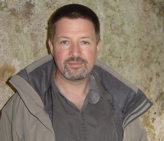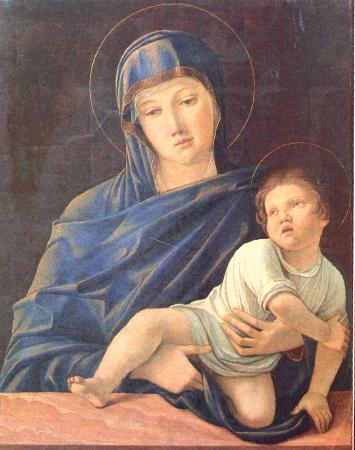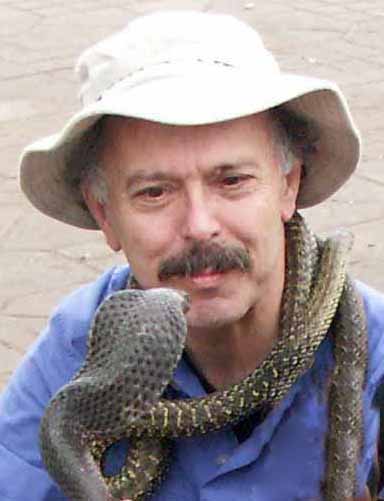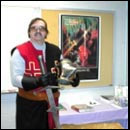 Bas Haring is filosoof. Hij had ook heel esoterisch en wellicht vakmatig verantwoord over praktische vraagstukken kunnen spreken, maar in plaats daarvan heeft hij geprobeerd om het behapbaar te maken voor een breed, om niet te zeggen heel erg breed, publiek. In podcasts van tien tot vijftien minuten buigt hij zich over vragen als 'Zijn wij de enige met geest?', 'Kom ik uit de fabriek?' of 'Mag je masturberen in de trein?'
Bas Haring is filosoof. Hij had ook heel esoterisch en wellicht vakmatig verantwoord over praktische vraagstukken kunnen spreken, maar in plaats daarvan heeft hij geprobeerd om het behapbaar te maken voor een breed, om niet te zeggen heel erg breed, publiek. In podcasts van tien tot vijftien minuten buigt hij zich over vragen als 'Zijn wij de enige met geest?', 'Kom ik uit de fabriek?' of 'Mag je masturberen in de trein?'Neem bijvoorbeeld de laatste vraag: Mag je maturberen in de trein? Het antwoord wordt meteen al gegeven: Nee. En het wordt als een syllogisme in de tweede zin afgemaakt. Het is verboden om je onzedelijke te gedragen in het openbaar; masturberen is onzedelijk en de trein is een openbare plaats en dus: het is verboden te masturberen in de trein. Maar waarom eigenlijk? In een simpele vogelvlucht wordt schaamte, sociale conventie, de beklemming daarvan en de zegen aangestipt. Maar wat voegt een drie-uitspraken interview met een exhibitioniste daar eigenlijk aan toe?
Eigenlijk heel knap en wellicht ook heel nuttig wat Bas Haring doet, maar mij is het net een beetje te simpel. Er wordt een spagaat gemaakt tussen heel zorgvuldig redeneren en analyseren aan de ene kant en vergaande versimpeling aan de andere kant.
Ik heb ooit een uitspraak van Einstein gehoord, dat je iets zelf niet begrijpt, als je het niet aan een negenjarige kunt uitleggen. Dat is een ware uitdaging en als je de filosofie weet te ontdoen van intellectuele esoterie, dan bereik je misschien ook wel een verrijking, maar is dat wat hier gebeurt?
Daalt Haring af naar het niveau van de negenjarige? Ik heb het gevoel van niet. Ik heb het gevoel dat je de negenjarige beledigt. Het is een heel ander niveau waar Haring naar afdaalt, een niveau dat tegelijk hoger en lager is dan dat van de negenjarige. Haring daalt af naar het niveau van de gemakzuchtige TV-kijker. Het resultaat is beurtelings een effectbejag, die die kijker moet binnenhouden (interview met exhibitioniste die niets te zeggen heeft. Is dit TV? Komt ze lekker in beeld?) en dan weer een versimpeling die haast debiliserend is. Dat is geen poging uit te leggen aan een negenjarige, maar naar mijn gevoel een knieval naar anti-intellectualisme.
Alleen aan het slot is Haring weer op niveau en komt hij met de beste uitspraak: Masturberen in de trein mag niet en daar ben ik helemaal voor, maar als je het toch wil, kan ik eigenlijk geen goede reden aangeven waarom niet. En je kan wel verdedigen dat hij heel goed naar die conclusie heeft toegewerkt. Dus eigenlijk best een goede podcast. Alleen ik verdraag het niet.






























